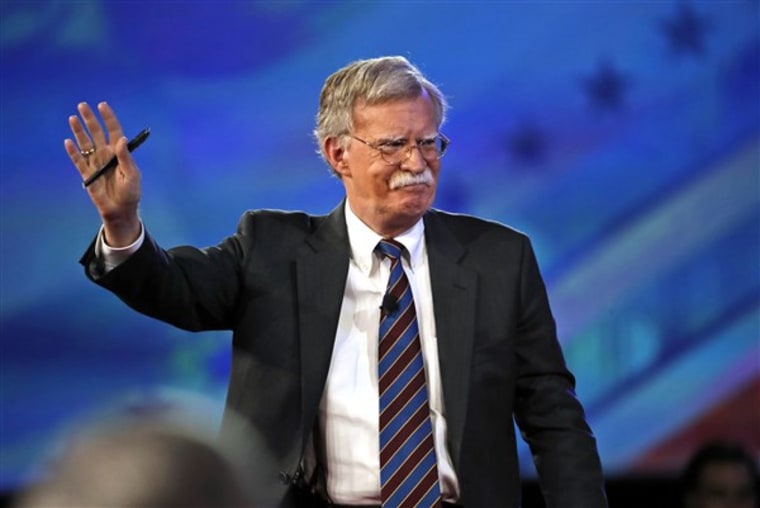Sen. Marco Rubio (R-Fla.) is clearly aware of the criticisms of John Bolton, Donald Trump's choice as the new White House national security advisor, but the Republican senator believes the uproar is "ridiculous."
Pointing to Bolton's work in the Bush/Cheney administration, Rubio insists that Bolton is, "by far, more qualified than Tom Donilon or Susan Rice were when they got the same job under Obama."
A basic review of Donilon's and Rice's professional backgrounds suggests otherwise, but I think Rubio's broader mistake is confusing resumes with records. They're not quite the same thing.
Bolton, for example, had a top post in Bush's State Department, where he served as undersecretary of state for arms control during the lead up to the invasion of Iraq. Rubio seems to think this is impressive: it makes sense for a former undersecretary of state for arms control to make the transition to serving as the White House national security adviser.
And while on paper that might make sense, can we at least try to remember what Bolton actually did while serving in that role? The New York Times' Antony Blinken recently explained:
As under secretary of state, Mr. Bolton insisted that Cuba was attempting to build a biological weapons program. The national intelligence officer for Latin America and the State Department's top biological weapons expert disagreed. In a fit of rage, Mr. Bolton tried to have both reassigned.Mr. Bolton also was accused of attempting to inflate the dangers of Syria's biological and nuclear weapons programs, by trying to sneak exaggerated assertions into speeches and congressional testimony before being called on it by intelligence officials.
And this was before Bolton was accused of politicizing intelligence in order to justify the decision to invade Iraq.
Rubio's argument seems to look at this background and effectively declare, "See how experienced Bolton is?"
The truth is, when Bolton was nominated to serve as ambassador to the United Nations, he faced opposition from some Republicans who saw him as too extreme. When Trump considered Bolton for a cabinet post, it was Republicans who urged the White House not to choose him.
But Rubio, who is much further to the right than his reputation generally suggests, finds concerns about Bolton to be "ridiculous."
I think there's something ridiculous about this, but it's not the criticisms of the president's radical new national security advisor.
